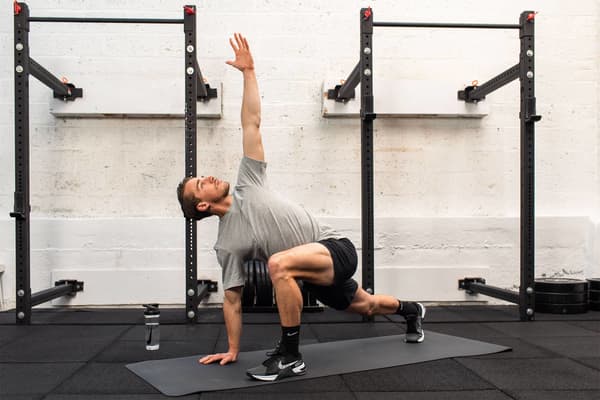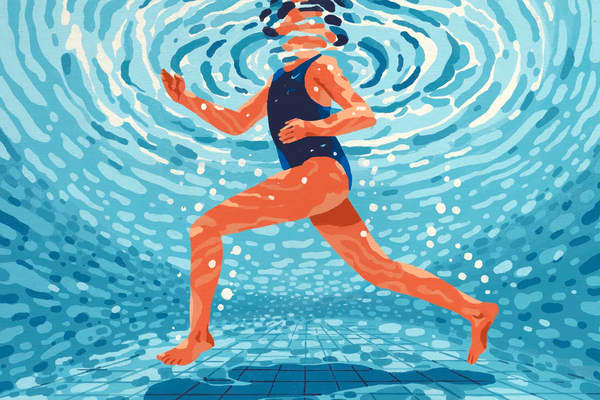The Benefits of Hiking, According to Experts
Sport & Activity
Health professionals share the potential health benefits of hiking and offer tips on how to gear up for a long hike.

Going on a hike may seem like a glorified walk through the woods but the physical and mental benefits of hiking can outweigh the ones found during a typical stroll around your local area.
In fact, research from a 2018 issue of the American Journal of Lifestyle Medicine recommended that doctors endorse hiking as a healthcare solution to meet physical activity guidelines and counter sedentary lifestyle-related health conditions that increase mortality rates. Not only for its immediate physical benefits but also for the ways hiking can offer long-term mental and physical health improvements, such as decreased cardiovascular disease risk and reduced stress levels.
According to Rand McClain, DO, hiking is considered a low-intensity form of aerobic exercise. Low-intensity workouts have less of a cardiovascular impact than higher-intensity exercise and cause less strain on the muscles. Though hikes are typically labelled by how intense they are, so if you want to take your workout to the next level, you can easily find a more strenuous trail. Simply put: the higher the intensity, the higher the impact it will have on your body.
"Allow for some more vigorous hikes as well as some 'active recovery' hikes in which very easy movement (as opposed to just complete rest) accelerates cellular recovery", McClain said.
(Related: Are There Benefits of Taking a Cold Shower After Working Out?)
Although experts consider hiking lower intensity compared to other forms of exercise, hiking still delivers numerous health benefits like any other exercise. And experts say proper warm-up and preparation before a hike is necessary for protecting your body's muscles and joints.
Here are the benefits you could reap after hitting the trails.
4 Health Benefits of Hiking
1.Hiking may decrease your cardiovascular disease risk.
Julie Shappy, PhD, AT, MPT, explained that hiking trains the most important muscle in your body—your heart. When you get your body moving and traverse up and down the terrain of a trail, your heart rate increases and that ultimately benefits your heart health in the long run.
"The stronger the heart is, the more efficient your heart is, the less risk you have for heart disease, high cholesterol, pulmonary disease, even cancer, vascular disease and secondary effects of diabetes", Shappy said.
One review from a 2019 issue of the journal Frontiers in Cardiovascular Medicine concluded that exercise improves heart health and lowers cardiovascular disease risk factors, including dilation of blood vessels and reduced inflammation.
2.Hiking improves your balance and motor control.
Shappy points out how the uneven terrain of a hike can work on your balance proprioception, meaning your body's sense of equilibrium, balance and movement will begin to improve as you continue to hike. Plus, because hiking trails typically aren't flat and require the hiker to step around tree roots, rocks and sometimes muddy puddles, hiking can help you fine-tune your motor skills, which include balance.
Shappy noted how important having good balance is, not only for older adults but also for people of any age. It helps with physical tasks such as athletic performance, benefits the nervous system and motor skills and decreases the risk of falls.
3.Hiking can build up your endurance.
McClain and Shappy all mention the benefits hiking has on endurance training. Endurance training, also known as aerobic exercise, includes activities that increase your breathing and heart rate—and hiking is one of them. And there's a wealth of benefits that come from routinely participating in endurance-based workouts.
One small-scale study in a 2021 issue of the Journal of Applied Physiology found endurance exercise stimulates circulating levels of certain mitochondrial-derived peptides, which benefit longevity as well as metabolic health. Good metabolic health means the body has ideal blood glucose (sugar), HDL cholesterol (the healthy kind of cholesterol) and blood pressure levels. All of these factors can help to reduce the risk of cardiovascular disease and diabetes.
4.Hiking can help reduce stress and boost mental health.
According to Benjamin Miller, PsyD, hiking also provides mental health benefits, from the exercise element of the activity to the environment in which it takes place.
"Exercise has been shown to help improve mood, including helping us with stress, anxiety and depression while also improving our overall physical health—like helping us manage our weight or preventing adverse health conditions", Miller said. "There's something powerful about our connection to the natural environment. Multiple studies show that the psychological well-being of a community can be tied to access to green and blue spaces".
"In fact, in Scotland, as part of their medical system, prescriptions are written for outdoor hikes to lower feelings of stress, lower blood pressure and improve overall health", McClain said.
Miller said that prioritising exercise and time in nature helps to clear the mind of stress, and research suggests that being outside may actually boost productivity at work and manage stress levels.
How To Prepare for a Long Hike
Shappy, who focuses on cardiopulmonary physiotherapy with active, older adults, recommended basic stretching and a slow warm-up—like a short five-minute walk on a flat surface or doing some stretches with a stretch-out strap—before starting a long hike on unknown terrain.
When you finally hit the trails, Rami Hashish, PhD, DPT, a body performance and injury expert, said it's important to take note of how your body feels throughout the entire hike.
"It may sound cliché but the most important point to be aware of when undergoing a long hike is to listen to your body", Hashish said. "When navigating uneven surfaces, you tend to get into positions and utilise muscles that you're not accustomed to, which can ultimately lead to fatigue".
Not to mention, because hiking may seem like a fun activity as opposed to a workout, Hashish added that you could accidentally end up overexerting yourself—depending on the length and difficulty of the trail. This is why it's so important to create time for breaks when you're hiking a long trail.
McClain added that bringing plenty of fluids with you on your hike is key for staying properly hydrated.
"Whether [it's] a sports drink that contains salts (those lost in sweating) or additional energy (sugars) for the hikes lasting more than 45 minutes to an hour, staying hydrated is very important, especially for hot and/or dry days", McClain said. "Pure water can suffice on the shorter hikes". This is especially the case when snacks (think energy bars, fruit and even sandwiches) are brought on the hike as well.
(Related: Will Drinking Salt Water Hydrate You More Effectively Than Regular Water?)
How To Recover From a Hike
Once you've completed a hike, Hashish recommended taking some time to cool down in order to gradually lower your heart rate after a lot of strenuous activity.
"One such method of cooling down is stretching, which may also help in reducing muscle stiffness", he said. "Following a long hike, the focus, of course, should be to stretch your feet, legs and core muscles".
Another recovery Hashish recommended is whole body cold therapy, like sitting in an ice bath.
"Not only does it help to limit inflammation but it has also been shown to improve the speed of muscle recovery", Hashish said. "It's also advised to hydrate with electrolytes and take vitamins, such as B, C and E, to optimise muscle recovery. Compression garments may also help in limiting muscle soreness".
Words by Kiersten Hickman





